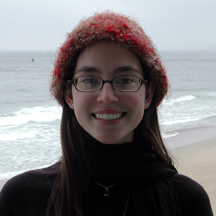UCI and PIRE Program will host the next IAHS Summer School on Copulas for Hydrology and Climate Applications
Click the banner below for more information!
Click the banner below for more information!
 Click Here for the PowerPoint Slides
Click Here for the PowerPoint Slides Click Here for More Info Regarding the CEE Affiliates Program
Click Here for More Info Regarding the CEE Affiliates Program
From Right to Left: Gregory Washington (Dean, Henry Samueli School of Engineering), Stanley Grant (Professor, UC Irvine), Adel Hagekhalil (Assistant Director, Bureau of Sanitation, City of Los Angeles), Sam Abi-Samra, David Feldman (Professor, UC Irvine), Brett Sanders (Chair, Department of Civil & Environmental Engineering)
Health risk concerns associated with household use of rooftop-harvested rainwater (HRW) constitute one of the main impediments to exploit the benefits of rainwater harvesting in the United States. However, the benchmark based on the U.S. EPA acceptable annual infection risk level of ≤ 1 case per 10,000 persons per year (≤ 10-4 pppy) developed to aid drinking water regulations may be unnecessarily stringent for sustainable water practice. In this study, we challenge the current risk benchmark by quantifying the potential microbial risk associated with consumption of HRW-irrigated home produce and comparing it against the current risk benchmark. Microbial pathogen data for HRW and exposure rates reported in literature are applied to assess the potential microbial risk posed to household consumers of their homegrown produce. A Quantitative Risk Assessment (QMRA) model based on worst-case scenario (e.g. overhead irrigation, no pathogen inactivation) is applied to three crops that are most popular among home gardeners (lettuce, cucumbers, and tomatoes) and commonly consumed raw. The infection risks of household consumers attributed to consumption of these home produce vary with the type of produce. The lettuce presents the highest risk, which is followed by tomato and cucumber, respectively. Results show that the 95th percentile values of infection risk per intake event of home produce are one to three orders of magnitude (10-7 to 10-5) lower than U.S. EPA risk benchmark (≤ 10-4 pppy). However, annual infection risks under the same scenario (multiple intake events in a year) are very likely to exceed the risk benchmark by one order of magnitude in some cases. Estimated 95th percentile values of the annual risk are in the 10-4 to 10-3 pppy range, which are still lower than the 10-3 to 10-1 pppy risk range of reclaimed water irrigated produce estimated in comparable studies. We further discuss the desirability of HRW for irrigating home produce based on the relative risk of HRW to reclaimed wastewater for irrigation of food crops. The appropriateness of the ≤ 10-4 pppy annual risk benchmark for assessing safety level of HRW-irrigated fresh produce is questioned by considering the assumptions made for the QMRA model. Consequently, the need of an updated approach to assess appropriateness of sustainable water practice for making guidelines and policies is proposed.

Click Here for the full article.
Click Here for a PDF Download of the article.
______________________________________________________________________
______________________________________________________________________
Department of Infrastructure Engineering
Melbourne School of Engineering
Salary: Professor Level E plus 17% employer superannuation contribution. An attractive remuneration package will be negotiated.
Who says you can’t change the world? We expect to do nothing less.
The University of Melbourne has an outstanding reputation for excellence in teaching and research. It is Australia’s top university and a leader in higher education in the Asia Pacific region and around the globe.
The University in now seeking an exceptional candidate for the new role of Chair of Sustainable Cities at the Melbourne School of Engineering. The School is Australia’s number one provider of engineering and IT education, it conducts cutting-edge interdisciplinary research and works with a range of partners from academia, government and industry to address some of society’s most critical problems. The quality of its programmes, staff and students helps to define engineering for the 21st century.
The Chair will be an academic leader of the highest calibre who is able to steer, develop and enhance the research programme in sustainability engineering applied to cities. He or she will have an outstanding research track record in selected areas of engineering and the built environment, and will combine disciplinary excellence with a strong commitment, ability to lead, and the ability to contribute to innovative and multi-disciplinary research programmes. The appointee will be expected to collaborate closely with industry, to attract substantial research funding, and to expand the research team. While the role focuses on providing research leadership, the new Chair will bring a passion for teaching and for training future leaders in engineering.
Applications should consist of a full curriculum vitae detailing academic and professional qualifications, full employment history, and relevant achievements. The CV should be accompanied by a covering letter describing briefly how the candidate meets the criteria outlined in the person specification, why the appointment is of interest and what they believe they can bring to the role. As this role will be critical in furthering the University of Melbourne’s Research Vision of impacting the three “Grand Challenges” it is also important to demonstrate an understanding and connection to these challenges in the application.
PLEASE DO NOT APPLY VIA THE UNIVERSITY WEB SITE.
We have engaged global executive search firm Perrett Laver to assist us in this recruitment. Completed applications should be uploaded at www.perrettlaver.com/candidates quoting reference 1382. The deadline for applications is Monday, 30 September 2013. As part of this process candidates may be invited to communicate with University representatives in person or by videoconference. It is expected that final shortlisted candidates will be invited for interview at the University in late October.
Applicants should provide the names and contact details of at least three potential referees. These referees will not be approached without the proper consent of the applicant.
If you have any further questions, please contact Kane Love in the Sydney Office of Perrett Laver at kane.love@perrettlaver.com or on +61 (0) 2 9006 3316.
Close date: Monday 30 September 2013
 |
Ashmita Sengupta – Building Tools to Increase Water Productivity About The Lecturer
|
 |
Megan Rippy – Optimized Water Sensitive Urban Design About The Lecturer |
 |
Kathleen Low – The Resiliency of Urban Water Systems About The Lecturer |
 |
Movarid Azizian- Protecting Ecosystem Services in Urban Streams About The Lecturer |
 |
Asal Askarizadeh – Detecting Changes in Stormwater Runoff due to LID Installation About The Lecturer
|